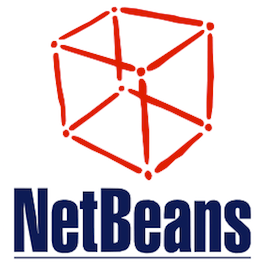
In this tutorial, we will show you how to install Apache NetBeans on Fedora 35. For those of you who didn’t know, The NetBeans (also known as Apache Netbeans) is an open-source and award-winning IDE (integrated development environment) application for Windows, Linux, and Mac. It offers excellent debugging capabilities, coding, plugins, and extensions with multiple out-of-the-box features.
This article assumes you have at least basic knowledge of Linux, know how to use the shell, and most importantly, you host your site on your own VPS. The installation is quite simple and assumes you are running in the root account, if not you may need to add ‘sudo‘ to the commands to get root privileges. I will show you the step-by-step installation of the Apache NetBeans IDE on a Fedora 35.
Prerequisites
- A server running one of the following operating systems: Fedora 35.
- It’s recommended that you use a fresh OS install to prevent any potential issues.
- SSH access to the server (or just open Terminal if you’re on a desktop).
- A
non-root sudo useror access to theroot user. We recommend acting as anon-root sudo user, however, as you can harm your system if you’re not careful when acting as the root.
Install Apache NetBeans on Fedora 35
Step 1. Before proceeding, update your Fedora operating system to make sure all existing packages are up to date. Use this command to update the server packages:
sudo dnf upgrade sudo dnf update
Step 2. Installing Java.
Run the following command to install Java to your Fedora system:
sudo dnf install java-11-openjdk-devel
Verify the Java version:
java -version
Step 3. Installing Apache NetBeans on Fedora 35.
- Install NetBeans from the official page.
By default, NetBeans is not available on Fedora 35 base repository. Now we download the latest version script installer from the official page:
wget https://dlcdn.apache.org/netbeans/netbeans/12.0/Apache-NetBeans-12.0-bin-linux-x64.sh
Next, set the executable permission to the installer file:
sudo chmod 700 Apache-NetBeans-*-bin-linux-x64.sh
Finally, run the Apache NetBeans installer using the following command below:
sudo ./Apache-NetBeans-*-bin-linux-x64.sh
After running the installer script above, the installer “Welcome page” will show up as follows, click Next to continue (or customize your installation by clicking on Customize) to follow the installation wizard.
Because NetBeans is installed in a custom location, it can not be launched with the NetBeans command instead you will have to use the full path. To simplify the starting process, we will create a link to the /usr/bin directory so that you can start NetBeans IDE with the NetBeans command:
sudo ln -s /usr/local/netbeans-*/netbeans/bin/netbeans /usr/bin/netbeans
- Install NetBeans using Snap.
First, run the following command to install Snap on your system:
sudo dnf install snapd
Next, we create a symlink to enable classic Snap support:
sudo ln -s /var/lib/snapd/snap /snap
To install Apache NetBeans, simply use the following command:
sudo snap install netbeans --classic
Step 4. Accessing Apache NetBeans on Fedora.
Once successfully installed, now launch the Apache NetBeans by going to Activities -> search for NetBeans or running the netbeans command in the terminal.
Congratulations! You have successfully installed NetBeans. Thanks for using this tutorial for installing the Apache NetBeans IDE on your Fedora 35 system. For additional help or useful information, we recommend you check the official NetBeans website.